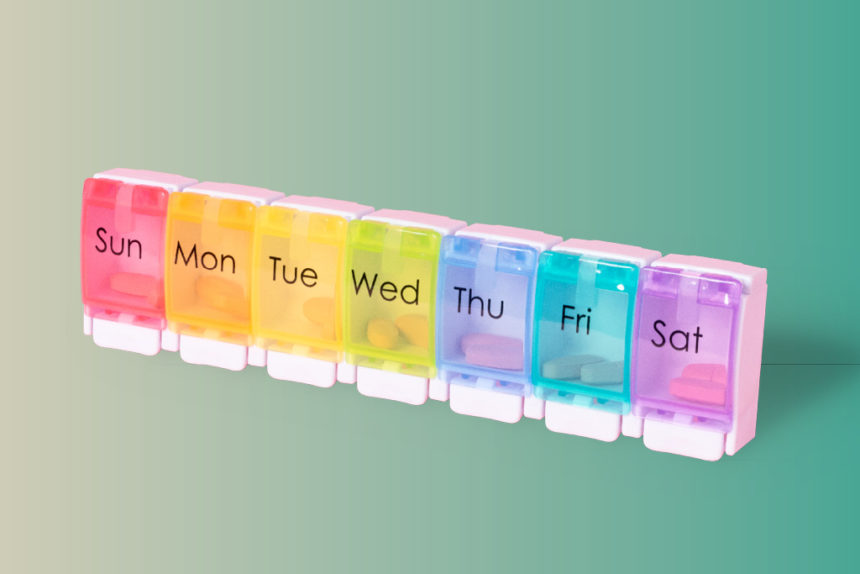On Wednesday, just days after news surfaced that GlaxoSmithKline had rejected three bids for its consumer-health unit (the last one for $68 billion), Unilever said it would not increase its offer. That meant the maker of Dove soap and Hellmann’s Mayonnaise was essentially throwing in the towel on a potential transaction.
Opposition to Unilever’s attempt to buy the consumer-health business owned by GSK and Pfizer wasn’t long in coming. That wariness — echoed by analysts, investors and journalists over the last few days — ultimately doomed the arrangement.
But the trend of lower-margin businesses attempting to “margin up” via consumer-health mergers and acquisitions looks set to continue, one consultant says.
The surprising news that Unilever, maker of Ben & Jerry’s ice cream, was even interested in GSK Consumer Healthcare broke last Saturday. Unilever confirmed it had approached GSK and Pfizer about a potential acquisition later that day.
The takeover would have added a number of medicine-chest staples to Unilever’s lineup. The business consists of an over-the-counter medicines portfolio that ranges from painkillers Advil and Panadol to heartburn med Nexium and smoking-cessation pill Nicorette. A vitamins, minerals and supplements (VMS) side houses Centrum vitamins and oral care products like Aquafresh toothpaste.
The consumer-health business, which GSK and Pfizer formed in 2018 from their separate consumer holdings, is due to be demerged and separately listed later this year. Its unaudited 2021 sales came in at 9.6 billion pounds ($13.1 billion), according to GSK.
But Wall Street wasted no time in throwing shade on Unilever’s idea, panning the price — which valued the business at 18 times projected earnings before interest, taxes, depreciation and amortization — and strategic fit. The drugmaker said that it had rebuffed Unilever’s proposals because, in its view, they undervalued the business and its future prospects.
The response sent Unilever’s shares down sharply earlier this week. And the unexpected publicity around the buyout attempt forced company executives to spell out their thinking in a second statement.
The CPG giant, they revealed, wants to reposition its portfolio into “higher growth categories” like health, beauty and hygiene. The execs added that the OTC side of the GSK/Pfizer unit “would be an attractive adjacent category, with the ability to combine Unilever’s consumer and branding expertise with GSK Consumer Health’s technical OTC capabilities.” (Unilever already has a presence in oral care and VMS.)
The problem with that strategy is that the OTC market, which comprises over half of Glaxo’s consumer-health sales, is only growing at 2% to 3% annually, per Barclays estimates cited by The Wall Street Journal. Nor does Unilever have the clinical and regulatory expertise needed to run that kind of business, the Journal added. The market for nutrition supplements has an expected annual growth of a more promising 5%, as people lean into nature for nourishment and healing.
Meanwhile, bringing the GSK/Pfizer unit into the fold would require Unilever to up its bid at a time when its stock price is relatively weak. According to the Financial Times, GSK and Pfizer would accept no less than 60 billion pounds ($81.9 billion), a price which would entail taking on high debt in addition to issuing shares.
Nevertheless, as pharma spins off its OTC companies — Johnson & Johnson recently announced it’s doing the same, following in the footsteps of Merck in 2014 — other large players in lower-margin/growth businesses have eyed these companies as a way to “margin up.”
This “is only the beginning of a very active period” in OTC and consumer health M&A, said Steven Robins, managing partner/principal at the New England Consulting Group.
“Even before Rx companies moved toward spin-offs, traditional package goods players saw the value in moving into the typically higher-margin OTC and VMS categories,” he pointed out in an email.
This, Robins recalled, was Reckitt Benckiser’s thinking when it bought Adams Respiratory Therapeutics, maker of the Mucinex and Delsym cold and flu brands, and then expanded further. Nestlé is doing the same through its Nestlé Health division, having acquired the Bountiful Company last year, along with Pure Encapsulations, Garden of Life and Zen-Pep, among other VMS players. In November, Unilever said it would buy vitamins maker SmartyPants, following its purchase of Olly Nutrition in 2019.
Compared to Unilever’s CPG products, consumer-health and VMS assets are accretive, Robins explained, even though for pharma they may be dilutive. Granted, some caution is warranted. Three years after Reckitt Benckiser bought infant nutrition company Mead Johnson, it split off the baby formula side from the rest of its business amid slumping sales.
“By refusing Unilever’s offer of $68 billion, GSK is setting a high bar for the kind of performance the consumer portfolio will have to deliver once they are a stand-alone public company,” Robins noted.
Yet the trend of other CPG giants using M&A to pad their portfolios with health and wellness brands looks set to continue. In addition, this could also lead to more dynamism among the consumer-health firms themselves, as newly independent companies make a much bigger play in acquiring OTC brands. Look for a lot more activity in specific deals and with different companies, Robins predicted.
And who knows? Maybe Unilever will find itself on the buying end once again, given its ambition to rotate its portfolio toward higher-growth categories.
After all, while Glaxo’s business was an attractive option in consumer health, Unilever was sure to note that “it’s not the only option.”







